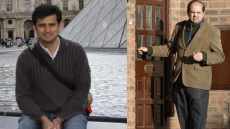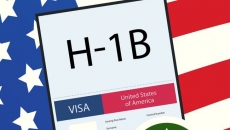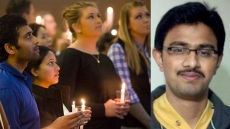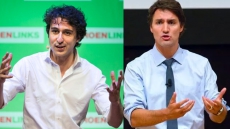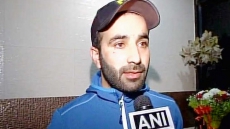Poverty statistics of Pakistan for fiscal 2014-15 appear to suggest that at least seventy (70) percent of the country acts as an ideal breeding ground for militants and jihadis.
Notwithstanding the fact that the country's armed forces continue to seek ways to neutralise this threat, the civilian administration has not been able to effectively raise the standard of living of a majority of the people, due it being weakened by more than a decade of militancy and terrorism.
Last year, an estimated 60 million Pakistanis were said to be living below the poverty line, posing a significant development-related challenge to Prime Minister Nawaz Sharif and his government.
Pakistan, according to last year's UNDP report, has recognized the fact that poverty is a multidimensional problem that encompasses not only monetary deprivation, but also inaccessibility to healthcare, education and other amenities for all communities in the country.
Data from the Pakistan Social and Living Standards Measurement (PSLM) survey for the 2014/15 period, has found that the country's Multidimensional Poverty Index (MPI) stands at 0.197, which means that the poor people in Pakistan experience 19.7 percent of the deprivations that would be experienced if all people were deprived in all indicators.
Using the same data from the 2014/15 PSLM survey, it was found that 38.8 percent of the population of Pakistan is poor according to the MPI and average intensity of deprivation per poor person was 50.9 percent.

A district map on the poverty levels in Pakistan in fiscal 2014-15 clearly shows that the most deprived areas were Balochistan, Gilgit-Baltistan (also known as the Northern Areas) and parts of Lower Sindh, where the poor account for more than 70 percent of the population. This is followed by parts of the North West Frontier Province (NWFP) and the province of Punjab, where poverty levels were pegged at between 60 to 70 percent and 40 to 50 percent respectively.
Observers and experts who have analyzed this phenomenon of poverty and how it eventually leads to the surfacing of these militant and jihadist elements who willfully perpetrate horrific terror strikes, are convinced that Pakistan's religious schools, madrasas, play a role contrary to what they were originally intended to do.
Starting out as centers of learning, a minority of these schools have built extremely close ties with radical militant groups that essay critical roles in sustaining existing international terrorist networks.
The madrasa tradition dates back almost a thousand years, but within Pakistan; there has been a boom in their numbers over the last two to three decades.
It can be said with certainty that militancy and jihadism took firm root in Pakistan from the 1980s, when then martial law administrator late General Zia-ul-Haq gained the support of religious groups by agreeing to administer a formalized Zakat (Islamic religious tax).

Simultaneously, the war in Afghanistan resulted in millions of refugees crossing over into Pakistan and subsequently facilitated the emergence of a radical form of jihadism.
Thousands of new madrasas surfaced. There are over 50,000 such schools within Pakistan (the exact number has never been determined), ranging in size from a few students to several thousands, each teaching extreme versions of Islam, Wahabism (which has its origins in Saudi Arabia) and Deobandism.
These schools of fundamentalist Islam have never been under state supervision, allowing them to decide what to teach and preach by rote.
Experts are of the view that the radicalisation of madrasas, and thereby them emerging as breeding grounds for militants and jihadists, is also due to the state's writ being weak, and also to the existence of a socio-economic system that is burdened by both debt and corruption.
The law promises education for all, but Pakistan spends only two to three percent of its gross domestic product (GDP) on public education, which is one of the lowest rates in world (just behind Congo as per UNDP data).
Government-run schools are considered horrendous, as they don't have enough teachers, books, infrastructure like electricity and running water, or even roofs.
Jobs in the education sector are acquired through political connections. So, it comes as no surprise that Pakistan's literacy rate is estimated to be only around 40 percent.

Private schooling is a dream for the poor, lower classes and refugees. So, where do they head except to madrasas, which provide food, clothes and even pay parents to entice them to send their children?
According to one report, the primary worry with this explosion of madrasas, is them promoting a distorted view of Islam, a view where hatred is permissible, and where the launch of a jihad allows for the murder of innocent civilians, including men, women, and children, and where terrorists, militants and jihadists are treated as heroes and martyrdom through suicide attacks is praised and serenaded.
Some of these radicalized institutions give weapons and physical training to the deprived, uneducated, young and dependent, who by and large, have been denied parental affection or guidance, and thus are, highly susceptible to be programmed to and for violence.
Radical Islamic militants in Pakistan and in other parts of the world see these schools (in Pakistan) as the new breeding and training ground for the next generation.
It would not be far from the truth to say that graduating classes are seen as a recruiting pool for transnational terrorist and conflict networks such as the Taliban and Kashmiri terrorist groups.

This yearly pipeline of recruits has dangerous implications for Pakistan and the international community's security, as a number of these schools fan the idea of jihad.
Foreigners joining these radical madrasas, ensures a global identity to this virulent influence, helping to worsen levels of violence in home states.
In overall terms, it highlights decay in governance, affecting regional stability, both in the short and long term.
